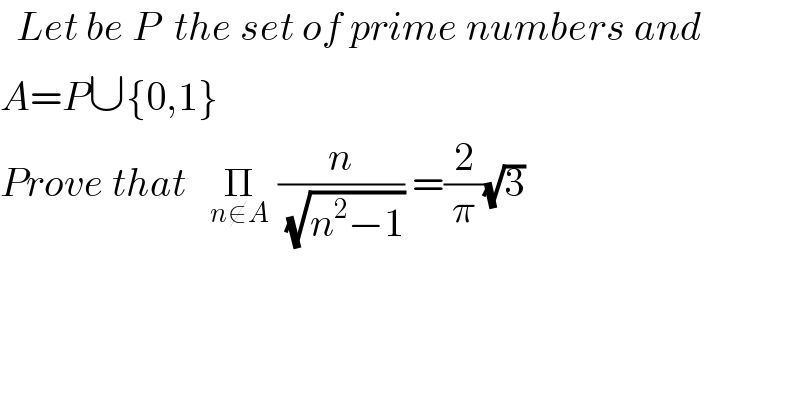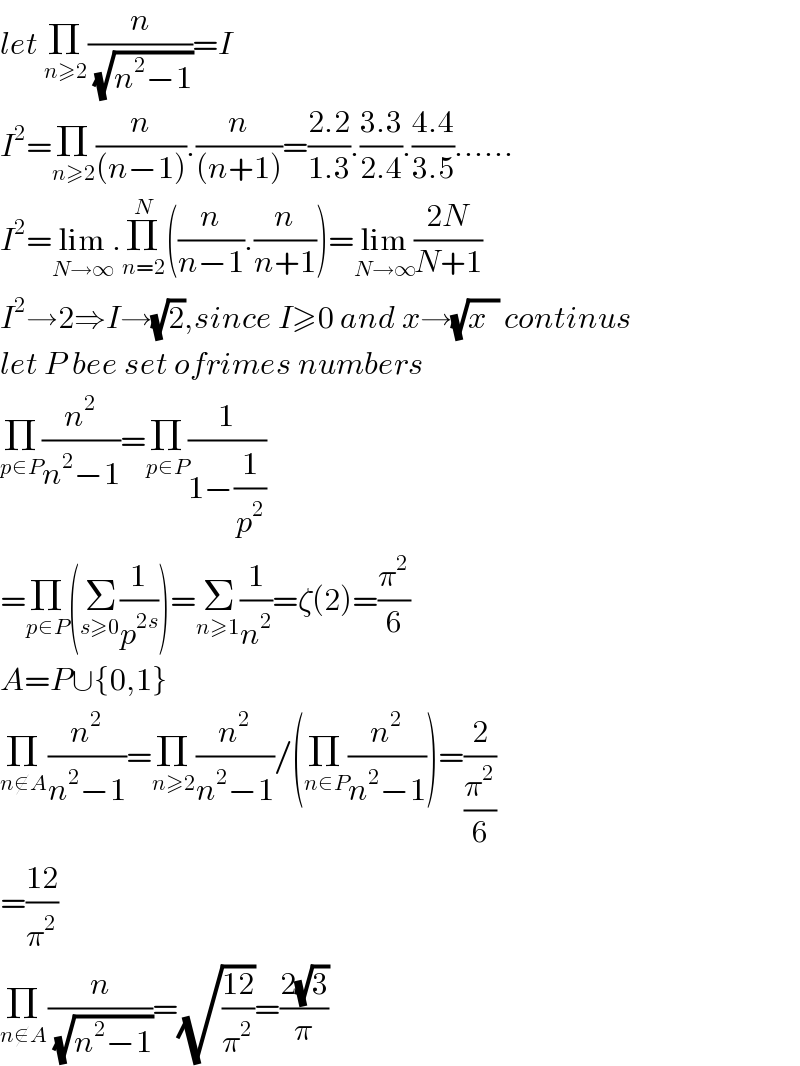
Question and Answers Forum
Question Number 117838 by snipers237 last updated on 13/Oct/20

Answered by mindispower last updated on 14/Oct/20

| ||
Question and Answers Forum | ||
Question Number 117838 by snipers237 last updated on 13/Oct/20 | ||
 | ||
Answered by mindispower last updated on 14/Oct/20 | ||
 | ||
| ||